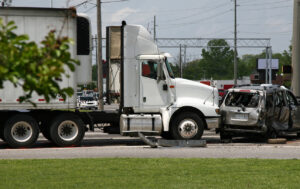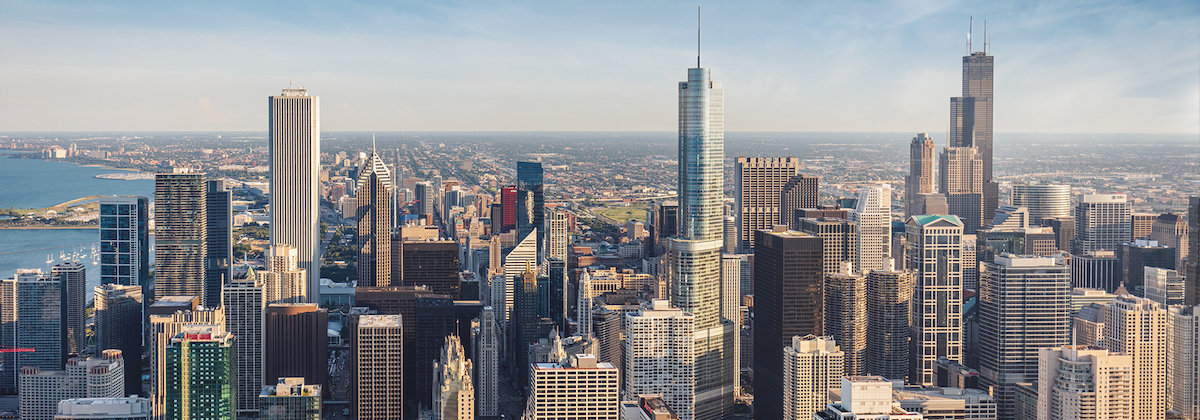
Trucking companies must comply with many laws and regulations. Both state and federal laws impose restrictions and requirements on the trucking industry to minimize the risk of truck accidents. These regulations cover everything from drug and alcohol testing of drivers to oversized and overweight load permits.
After an 18-wheeler accident in Chicago, IL, a trucking company’s compliance with state and federal regulations may determine liability for the crash. Attorneys of Chicago Personal Injury Lawyers will analyze your truck accident to determine the strength and value of your case.
Contact our experienced Chicago truck accident attorneys at (872) 324-4375 to schedule a free case assessment.
How Attorneys of Chicago Personal Injury Lawyers Can Help After a Truck Accident in Chicago, IL

Attorneys of Chicago Personal Injury Lawyers was founded in 2011 to represent injured people in Chicago, Illinois, against the people and businesses responsible for harming them. Our Chicago truck accident lawyers have over 30 years of combined legal experience standing up to at-fault parties and their insurers.
If you suffer an injury caused by someone else’s negligent or wrongful actions, our firm provides the following services:
- A free consultation to listen to your situation and analyze your legal options
- An independent investigation into your truck collision
- Insurance claim filing and negotiations with the insurer to settle it
- Aggressive litigation if the insurer and at-fault party refuse to settle
A truck accident can leave you with enormous medical bills and catastrophic injuries. Contact our Chicago personal injury lawyers to discuss your injuries and the compensation you can seek for the losses they caused.
How Many Truck Crashes Happen in Chicago?
Under U.S. law, commercial motor vehicles subject to federal regulations include:
- Vehicles with a gross vehicle weight rating of 10,001 pounds or higher
- Buses that carry at least eight people, including the driver, for compensation
- Buses that carry at least 15 people, including the driver (but not for compensation)
- Any vehicle transporting hazardous materials
Chicago’s car accident statistics break down crashes according to vehicle type.
In 2022, Chicago had the following large vehicle crashes:
- 3,250 single-unit trucks, such as box trucks and garbage trucks
- 2,256 crashes involving tractor-trailers, also called semi-trucks
- 1,476 crashes involving buses with over 15 seats
- 529 crashes involving buses with nine to 15 seats
- 451 crashes involving single-unit trucks with trailers
- 268 crashes involving tractors without trailers
- One crash involving farm equipment
Based on these statistics, you can calculate that Chicago had 8,231 commercial motor vehicle crashes in 2022. These crashes caused zero deaths but injured 431 drivers, passengers, pedestrians, and cyclists.
Trucking Regulations Under State and Federal Law
U.S. and Illinois laws cover many aspects of the trucking industry. Although these legal systems share jurisdiction over trucking companies, they have tried to minimize overlap in several ways.
First, U.S. law only covers trucks engaged in interstate commerce. This means the truck must travel across state or international borders or continue the delivery of cargo that originated in another state or country. Illinois law, by contrast, covers intrastate deliveries that start and end without leaving the state.
Second, U.S. law sets a baseline for the weights and sizes of trucks using interstate highways. Illinois state law governs the issuing of oversized or overweight permits for trucks over the federal baseline.
Third, the U.S. does not issue driver’s licenses. Instead, it sets the minimum requirements for commercial driver’s licenses (CDLs). The state issues CDLs and regulates suspensions and reinstatements.
Within this framework, some trucking regulations that could impact truck safety include the following:
Drug and Alcohol Testing
Federal law requires trucking companies to conduct drug and alcohol tests on drivers in the following situations:
- Upon hiring
- Randomly
- After a truck crash
- Before reinstatement after a suspension for drugs or alcohol
If an operator does not test its drivers, it can lose its right to operate in interstate commerce. If a driver fails a test, the operator must report it to the Federal Motor Carrier Safety Administration (FMCSA), which, in turn, will report it to the state. The employer must follow the FMCSA’s return-to-duty process, which includes suspension and substance abuse treatment.
The state will typically suspend a CDL only for DUI arrests or refusing to take a test after a crash.
Truck Maintenance
The FMCSA requires trucking companies to perform routine maintenance and keep its fleet in road-worthy condition. If an operator fails to stick to a maintenance schedule or keep records of its maintenance activities, the FMCSA can suspend the operator’s right to carry goods in interstate commerce.
Traffic Enforcement
Illinois police agencies enforce the state’s traffic laws, including stopping and citing truck drivers for the following dangerous behaviors:
- Speeding
- Driving under the influence of drugs or alcohol
- Tailgating
- Changing lanes unsafely
Enforcement and penalties fall entirely within the state’s jurisdiction. Illinois can suspend a CDL for certain violations like a hit-and-run.
Schedule a Free Consultation With Our Experienced Truck Crash Attorneys in Chicago, IL
A truck crash can cause catastrophic injuries due to the massive size of the vehicles involved. Contact Attorneys of Chicago Personal Injury Lawyers at (872) 324-4375 for a free consultation to learn about your right to pursue compensation after a commercial truck accident.
